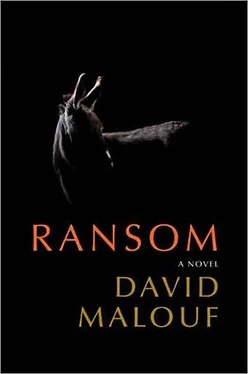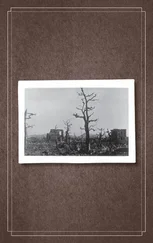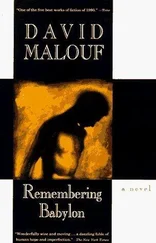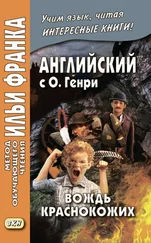And for him the misery of this moment will last forever; that is the hard fact he must live with. However the story is told and elaborated, the raw shame of it will be with him now till his last breath.
But time has not yet reached that point. The blood still warm and ticking in his wrist, Priam raises an arm and points towards the walls of his city and to a figure standing small and emphatic against the light.
‘There,’ he tells the driver. ‘Do you see her?’
The carter nods, but is lost in his own concerns.
He must find something in the market for his little one. A pair of earrings perhaps, or a child’s painted cart like his own — she would like that — to wheel up and down the floor of their hut. Something too for the daughter-in-law — more difficult, this — to celebrate his homecoming, and to mark this day and night he has just passed that has been so extraordinary and which he owes to Beauty. He will find something for Beauty as well, and for Shock, who cannot help, poor creature, that he is unremarkable and has no special charm.
Pricked with conscience by the ingratitude of this, he leans forward and scratches Shock’s ear with the traces; then, so that Beauty will not be jealous, tickles her ear as well.
As for all that has happened in these last hours, what a tale he will have to tell! He will tell it often over the years.
In the early days, while Troy still stands solid and gleaming on its high hill, the figures he has to speak of, Priam, Hecuba, Achilles, will still, in the minds of his listeners, be sharers of their own world, creatures like themselves of flesh and blood. Later — when Troy has become just another long, windswept hilltop, its towers reduced to rubble, its citizens scattered or carried off, like Hecuba and Hector’s wife Andromache and Cassandra and the other Trojan women, into exile and slavery — all he has to tell, which was once as real as the itch under his tunic and the lice he cracks between his nails, will have become the stuff of legend, half folktale, half an old man’s empty bragging.
Even the memory then, of what once was, will have grown dim in the minds of a generation who, for the whole of their lives, have known nothing but chaos and lawlessness. Roads impassable and, where they are not, controlled by petty warlords who demand toll-fees at every ford, or freebooters intent on robbery or worse. No village, however securely walled, safe now from the bands of longhaired brigands and marauders who, as soon as the snows have begun to melt, erupt out of mountain passes to rob farmers of the last of their grain, to fire barns, steal women and cattle, and kidnap children as new recruits to their footloose empire of flame and pillage.
So many stories!
He tells them to anyone who will share a drink with him. On summer evenings under the big misshapen sycamore at the tavern door, nodding off at times in mid-sentence so that his listeners creep away smiling and shake their heads. Or by the light of a single oil lamp, and with a young one on his lap — one of his many great-grandchildren — on long nights when the entire village is holed up against invaders behind the doors of a fortified barn.
Those who sit, intent as children, and give themselves up to these old tales, will have heard them a hundred times before and know every detail and unlikely turn.
The meeting in the tamarisk grove with the impudent fellow who was, in fact, the god Hermes in the guise of an Achaean warrior: a dandified youth with golden tresses, and a scent — it was this that had given him away — like gillyflowers.
How, in a quiet spot beyond the same tamarisk grove, he had managed, without too much trouble, to tempt the old king, Priam, who had never heard of such a thing, to cool his feet in the running stream, and taste one of the little griddlecakes his daughter-in-law was such a dab hand at.
How he had spent the night in the open yard beside Achilles’ hut in the Greek camp, and was given gobbets of meat to eat that the great Achilles himself had sliced and roasted. With scallions, and the finest wheaten bread to soak up the grease. And had slept very comfortably afterwards under a lambswool rug provided by one of Achilles’ squires.
His listeners do not believe him, of course. He is a known liar. He is a hundred years old and drinks too much.
What he has to tell did happen — or so they say — but to someone else. Idaeus, the man was called, King Priam’s herald. Is it likely that such a figure, a king’s herald, would have griddlecakes in his satchel? Do great kings dabble their feet in icy streams?
This old fellow, like most storytellers, is a stealer of other men’s tales, of other men’s lives. The whole of his own life he has spent as a poor day labourer. He is, as everyone knows, a carter who, long ago, when there was a town hereabouts, went out each morning to offer himself for hire in the marketplace, carrying household goods from one ward to another, and hay or stone or firewood to nearby villages. The most remarkable thing about him was that he was the owner of a little black mule who is still remembered in this part of the country and much talked about. A charming creature, big-eyed and sleek, she bore the name of Beauty — and very appropriately too, it seems, which is not always the case.
A note on sources
One rainy Friday afternoon in 1943, when we wereunable to go out into the playground for our usual period of tunnel ball, our primary-school teacher, Miss Finlay, read us a story. It was the Troy story. For some reason, though I was a keen reader, I had never heard it, and when the bell rang and Miss Finlay dismissed us with the story left hanging, I was devastated.
We too were in the middle of a war. Brisbane, where I lived, was the headquarters of General MacArthur’s Pacific campaign and the jumping-off place for hundreds of thousands of American and other troops on their way to the north. The city buildings were sandbagged, their windows crisscrossed with sticky-tape against the possibility of their shattering during a raid. I had immediately connected Miss Finlay’s ancient and fictional war with our own. We too were left hanging in the midst of an unfinished war. Who could know, in 1943, how our war too might end?
Thirty years later, in a poem called ‘Episode from an Early War’, still haunted by the characters in Miss Finlay’s story, I tried to bring the two parts of my experience together:
Sometimes, looking back, I find myself, a bookish
nine-
year-old, still gazing down
through the wartime criss-cross shock-
proof glass of my suburban primary school.
Blueflint gravel
ripples in my head, the schoolyard throbs. And
all the players
of rip-shirt rough-and-tumble
wargames stop, look on in stunned surprise:
Hector, hero of Troy,
raw-bloody-boned is dragged across the scene
and pissed on and defiled,
while myrmidons of black flies crust his wounds
and the angelic
blunt-faced ones, the lords of mutilation,
haul off and watch.
Thirty years later again, Ransom is a return to that unfinished story; to my discovery, once in 1943, once again in 1972, that
… the war, our war,
was real: highways of ash
where ghostly millions rise out of their shoes and
go barefoot
nowhere …
It re-enters the world of the Iliad to recount the story of Achilles, Patroclus and Hector, and, in a very different version from the original, Priam’s journey to the Greek camp. But its primary interest is in storytelling itself — why stories are told and why we need to hear them, how stories get changed in the telling — and much of what it has to tell are ‘untold tales’ found only in the margins of earlier writers.
Читать дальше












